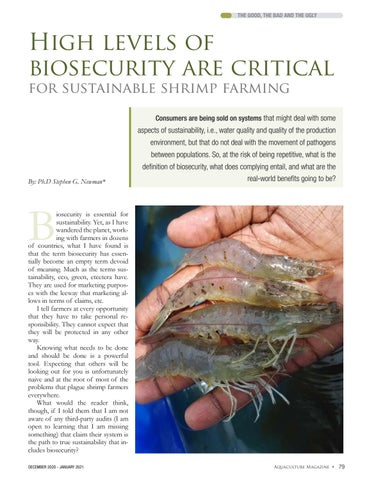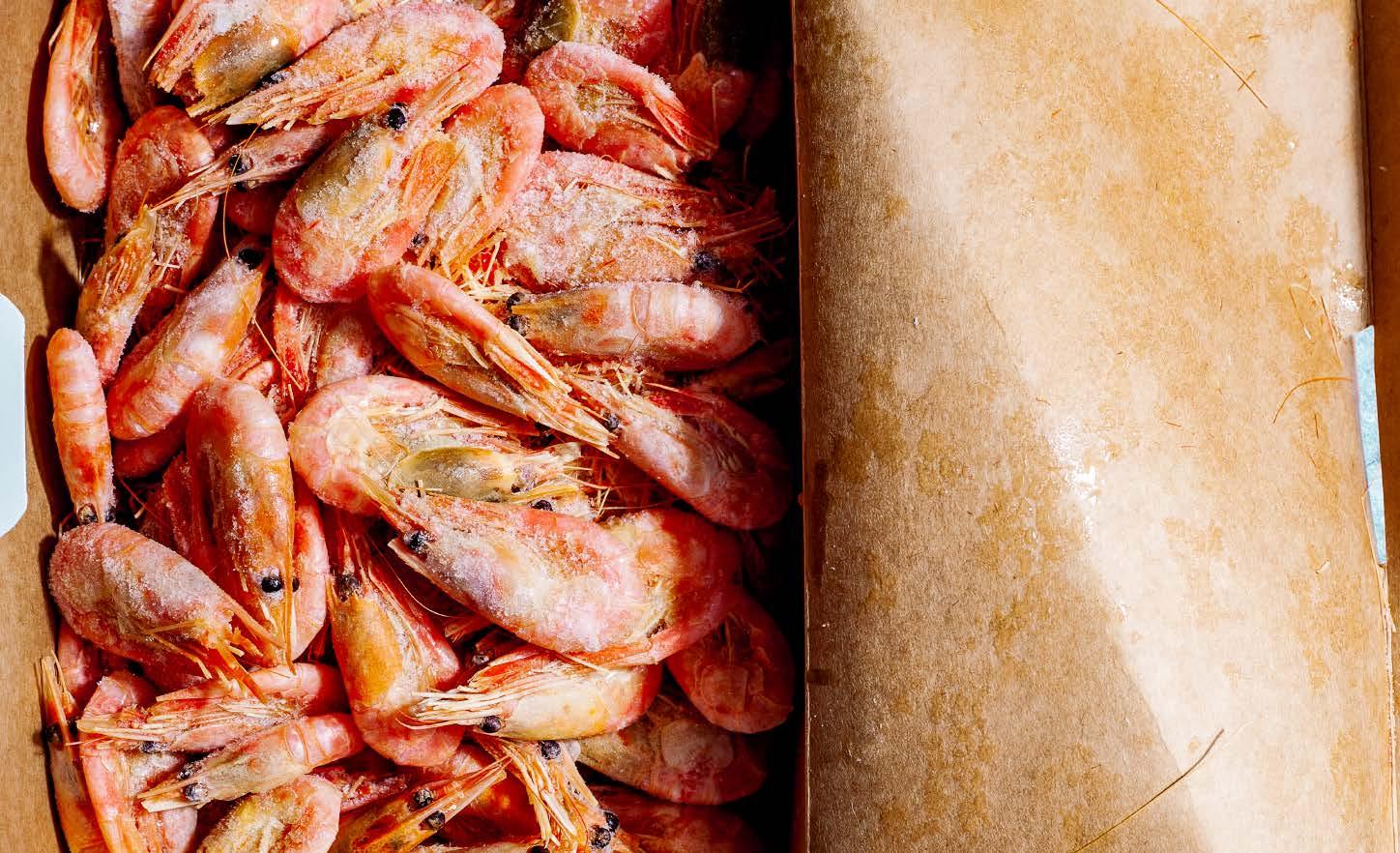THE GOOD, THE BAD AND THE UGLY
High levels of biosecurity are critical for sustainable shrimp farming
Consumers are being sold on systems that might deal with some
aspects of sustainability, i.e., water quality and quality of the production environment, but that do not deal with the movement of pathogens between populations. So, at the risk of being repetitive, what is the definition of biosecurity, what does complying entail, and what are the By: Ph.D Stephen G. Newman*
real-world benefits going to be?
B
iosecurity is essential for sustainability. Yet, as I have wandered the planet, working with farmers in dozens of countries, what I have found is that the term biosecurity has essentially become an empty term devoid of meaning. Much as the terms sustainability, eco, green, etcetera have. They are used for marketing purposes with the leeway that marketing allows in terms of claims, etc. I tell farmers at every opportunity that they have to take personal responsibility. They cannot expect that they will be protected in any other way. Knowing what needs to be done and should be done is a powerful tool. Expecting that others will be looking out for you is unfortunately naive and at the root of most of the problems that plague shrimp farmers everywhere. What would the reader think, though, if I told them that I am not aware of any third-party audits (I am open to learning that I am missing something) that claim their system is the path to true sustainability that includes biosecurity? DECEMBER 2020 - JANUARY 2021
Âť 79









